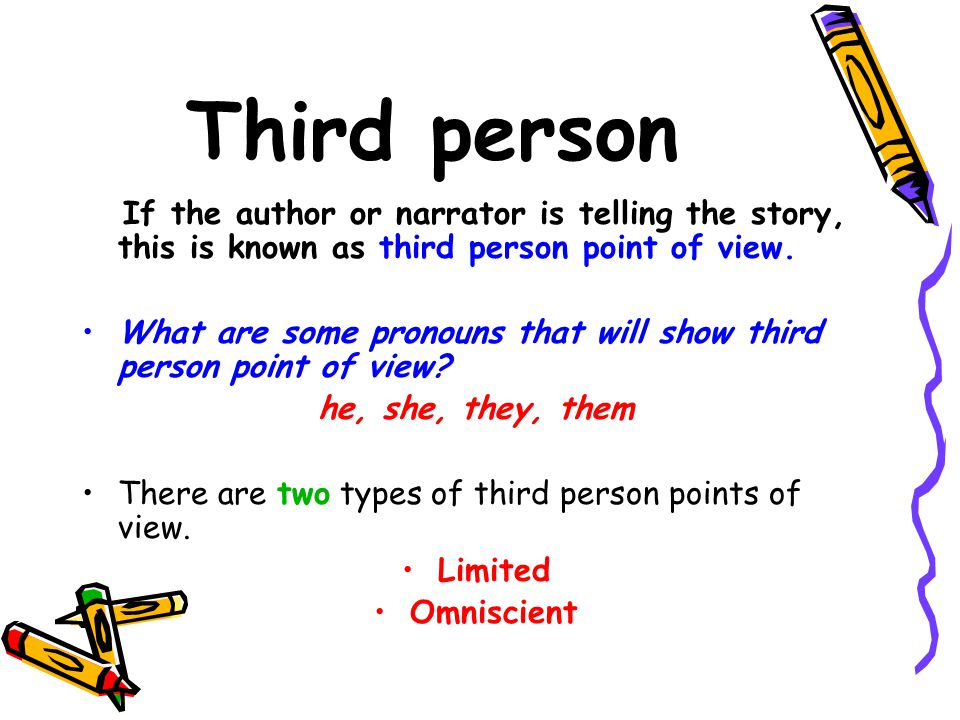

When we discuss POV, we are not really talking about what an author’s theme or opinion is. All rights reserved.1 Point of View is a literary term which relates to who the narrator in a work is, from what voice or angle of vision or perspective a story or other literary work is told.Isīecause the phrase “point of view” also can mean “opinion” (as in “Bill had a different point of view”) some readers have trouble understanding what the phrase means in literary terms.

Many biblical narratives (e.g., Jonah) are presented from the third-person omniscient point of view.īy Allen B. The omniscient point of view enables the narrator to see similtaneous events in separate locations. The third-person narrator who has unlimited knowledge of the private actions, internal thoughts, and personal feelings of the characters presents from the third-person omniscient point of view. The third-person narrator who has limited knowledge of the private actions, internal thoughts, and personal feelings of the characters presents from the third-person limited point of view.
#3RD PERSON LIMITED DEFINITION LITERARY TERM FULL#
The third-person narrator may possess limited or full knowledge of the characters. That is, no character communicates directly to the reader. The evidence that the narrator is communicating from the third-person mode is that the storyteller uses third-person pronouns (i.e., he, she, it, him, her, his, hers, its, himself, herself, itself, they, them, their, theirs, and themselves), but does not use first-person pronouns. The narrator tells the narrative as an outside person or the third person. The second-person narration mode is commonly combined with the first-person point of view when the narrator communicates as "I" and addresses the reader as "you." Paul employs the first- and second-person voice in his personal epistles (viz., Romans, Ephesians, Titus, etc.). The second-person point of view is the least commonly used narration mode. The second-person point of view treats the reader as a witness to the story. The evidence that the narrator is communicating from the second-person mode is that the storyteller directly addresses the reader using second-person standard pronouns (i.e., you, your, yours, yourself, and yourselves) or second-person archaic pronouns (i.e., thou, thee, thy, thyself, and thine). The narrator tells the narrative by directly addressing the reader or the second person. Many biblical writers wrote from a first-person point of view. The first-person narrator is one witness to the story. The first-person narrator is restricted in knowledge and may or may not be accurately perceiving other characters, situations, or events. The author presents from his personal view as a participant or presents from the adopted view of a character. The evidence that the narrator is communicating from the first-person mode is that the storyteller uses first-person pronouns (i.e., I, we, me, us, myself, ourselves, my, mine, our, and ours). The narrator tells the narrative from his own perspective as the first person and as a character in the story. (The narrator's point of view should not be confused with the author's point of view or a character's point of view.) The narrator can present from three primary prisms or views which are simply enumerated as the first-person, the second-person, and the third-person point of view.įirst-person Point of View. However, authors most often communicate their narrative through the "voice" and from the view of a narrator.

Personal letters, personal journals, and eyewitness accounts of history use the first-person point of view. Hence, the author and the narrator and the main character are the same person for autobiographies. The writer of an autobiography narrates his own life's story as the main character. The narrator's point of view is the perspective or vantiage from which the storyteller narrates.


 0 kommentar(er)
0 kommentar(er)
